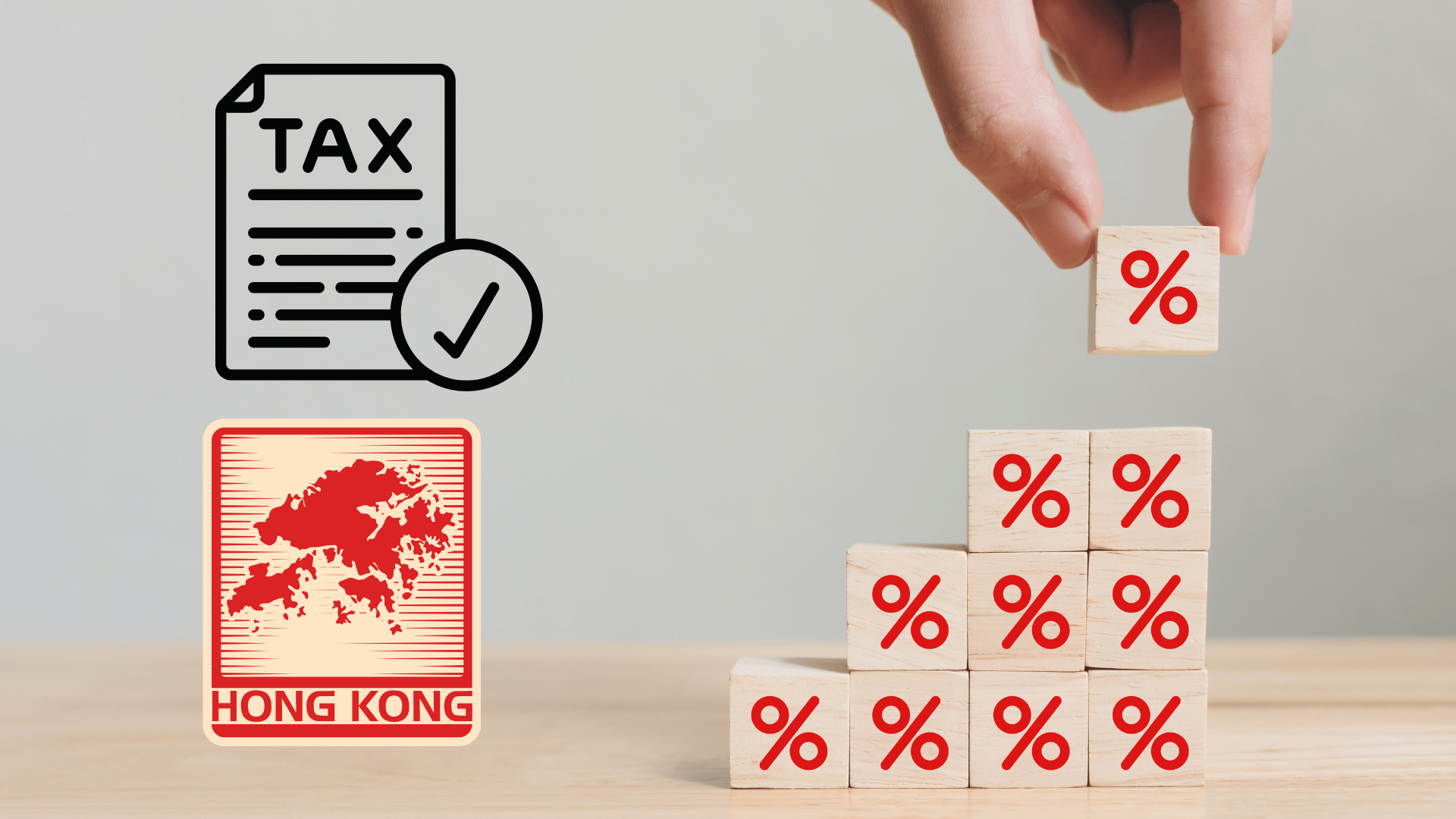A Guide to obtaining Certificate of Resident Status in Hong Kong
Certificate of Resident Status (CoR) is a document issued by the Hong Kong Inland Revenue Department (IRD) stating that the applicant, who can be an individual or an entity, is a Hong Kong tax resident under the double tax agreement (DTA) between Hong Kong and a particular foreign tax jurisdiction for a particular calendar year.
In order to enjoy the tax benefits, it is required to obtain a Certificate of Resident Status (‘Resident Certificate’) or Tax Residency Certificate from the Hong Kong Inland Revenue Department (‘HK-IRD’) as proof of this Hong Kong resident status.
Currently, Hong Kong has entered into 28 double taxation agreements (‘DTA’) under which a Hong Kong tax resident is potentially entitled to tax treaty benefits, such as enjoying a preferential tax rate in respect of the withholding tax on passive income, e.g. dividend income, interest income, and royalty income, charged by the DTA partners of Hong Kong.
This is not always a straightforward process as seen in the application of different double taxation agreements like the Hong Kong – Spain one among others.
Eligible Parties for Tax Residency Certificate
In general, the following persons and entities are eligible to apply for the Resident Certificate:
- An individual who ordinarily resides in Hong Kong;
- An individual who stays in Hong Kong for more than 180 days during a year of assessment or for more than 300 days in 2 consecutive years of assessment, one of which is the relevant year of assessment;
- A company, partnership, trust, or other body of persons incorporated or constituted in Hong Kong; and
- A company, partnership, trust, or other body of persons incorporated or constituted outside Hong Kong but managed and controlled in Hong Kong.
For example, a number of Hong Kong companies (HK Cos) are used as
- a vehicle to hold the shares of entities in various jurisdictions, in particular mainland China;
- a treasury centre to advance loans to foreign group entities, and
- an intellectual property (IP) holding vehicle which licenses the IP rights to foreign entities.
In return, HK Cos receive dividend income, loan interest income, and royalty income therefrom respectively.
With a view to enjoy a potential lower withholding tax rate on the said passive income in foreign tax jurisdictions (e.g. from 10% to 5% on dividends paid out from mainland China pursuant to the DTA between mainland China and Hong Kong), HK Cos need to apply for the CoR with the IRD.
Certificate of Resident Application Forms
In order to obtain such a Resident Certificate, it is required to provide the HK-IRD with an application form together with the relevant required documents. It usually takes about 21 working days for the HK-IRD to assess the application.
With effect from 1 February 2015, the Resident Certificate application forms to be completed by a company, partnership, trust or other body of persons, either incorporated in Hong Kong or outside of Hong Kong (collectively referred as ‘Companies’) and which Companies are applying the DTA between Hong Kong and Mainland China or the DTA between Hong Kong and tax jurisdictions other than Mainland China, have been amended and revised. The major changes are summarised as follows:
When applying for tax benefits under the Hong Kong/Mainland China DTA, Hong Kong incorporated Companies and non-Hong Kong incorporated Companies will now both be using the same revised application form; whereas different application forms were used by Hong Kong incorporated Companies and non-Hong Kong incorporated Companies prior to the change on 1 February 2015.
Required Documentation
Hong Kong incorporated Companies applying for tax benefits under the Hong Kong/Mainland China DTA are now required (as has already been the case for non-Hong Kong incorporated Companies) to submit additional information on the revised application form. In particular, Hong Kong incorporated Companies have to provide:
- The details of their establishments and business activities in and outside Hong Kong
- The details of their managerial personnel and staffing
- The place(s) where their management and control are exercised.
Furthermore, both Hong Kong and non-Hong Kong incorporated Companies applying for tax benefits under the Hong Kong/Mainland China DTA are now also required to supply additional information such as:
- The principal bankers of the Companies in Hong Kong
- The total number of bank accounts maintained in Hong Kong
- The nature of permanent establishment maintained in Hong Kong
- The balance of cash at bank stated in the statement of financial position as at the end of the last reporting period.
In respect of Hong Kong and non-Hong Kong incorporated Companies that are applying for tax treaty benefits under the DTA between Hong Kong and tax jurisdictions other than Mainland China, these Companies will now be required to provide additional information including information on:
- The principal bankers of the Companies in Hong Kong
- The total number of bank accounts maintained in Hong Kong
- The nature of permanent establishment maintained in Hong Kong
- The balance of cash at bank stated in the statement of financial position as at the end of the last reporting period.
Implications of the Revised Application Forms
The requirements for Hong Kong incorporated Companies, when applying for a Resident Certificate under the DTA between Hong Kong and Mainland China, to supply additional comprehensive information implies that the HK-IRD will adopt a more tightened approach in assessing whether these Companies are proper Hong Kong tax residents and this change may be due to the request of the Mainland China tax authorities for a stringent resident status assessment by the HK-IRD.
At the same time, obtaining a Resident Certificate under a DTA between Hong Kong and tax jurisdictions other than Mainland China, has become more burdensome and difficult. There is also a risk of erroneous tax residency reporting coming from banks and other institutions which may jeopardise the acquisition of the correct certificate of tax residency. Therefore, these amendments will likely require existing Hong Kong incorporated Companies/non-Hong Kong incorporated Companies benefitting from DTA’s, to review their existing tax substance in Hong Kong.
Obtaining a Certificate of Resident Status from the IRD
It has to be noted that it is no longer straightforward to obtain a CoR from the IRD. An entity has to prove to the satisfaction of the IRD that its management and control takes place in Hong Kong and it has substantial substance maintained in Hong Kong.
After submission of an application for the CoR to the IRD, the IRD will probably request for the detailed information and supporting documents, including but not limited to the following, for assessing the application:
1. The details of the applicant’s physical establishment(s) in Hong Kong, if any, such as the location, the size, the floor plan, the usage and functions carried out therein, and the supporting documents, such as the tenancy agreement.
2. The details of the applicant’s director(s) and other management personnel, such as their personal particulars, their respective roles/duties/responsibilities and the place of work, their remuneration package, and the relevant supporting documents, such as employment/directorship/service contracts, travel itineraries, statements of travel records issued by the Hong Kong Immigration Department.
3. The details of directors’ meetings.
4. The details such as by whom, how and from where the following business functions are carried out and the relevant supporting documents:
- formulation of strategic policies
- determination of business directions
- setting work plans
- decision on mode of business financing
- implementation of management policies/directions/work plans
- evaluation of business performance
5. By whom, how and from where the applicant’s business activities are carried out.
Possible challenges when applying for the Certificate of Resident Status
- The applicant, such as an investment or IP holding company, may not have much substance, such as office, fixed assets and employees, in Hong Kong.
- The applicant’s director(s) manages and controls the applicant’s business outside of Hong Kong, or the applicant’s director(s) in Hong Kong does not actively participate into the management and control functions for the applicant.
- The applicant does not have active business and is considered as being set up in Hong Kong for the purpose of obtaining tax benefits granted under the DTAs.
- The IRD may refuse to issue a CoR where it is considered that the applicant would not be entitled to the tax treaty benefits, such as certain conditions for claiming the tax treaty benefits cannot be met.
Period of validity of the Certificate of Resident Status
In general, a CoR is valid for one calendar year only. However, a CoR applied for the purpose of the DTA between mainland China and Hong Kong is generally valid for that calendar year and the two succeeding calendar years, unless there are changes in the applicant’s circumstances.
HKWJ Tax Law can help
If an entity would like to apply for a CoR, it is recommended to plan ahead and review whether its management and control functions are exercised from out of Hong Kong and whether it has sufficient substance maintained in Hong Kong. Then, the entity should take the necessary actions to strengthen the claim for the CoR before making the application.
Applicants also need to be skilful and careful when preparing the application for the CoR and answering to the IRD’s enquiries. Providing unfavourable information or documents might potentially result into denial of the issuance of the CoR by the IRD.
In order to strengthen the chance of success, one needs to voluntarily provide the favorable information, documents and grounds for the CoR, instead of merely supplying the information and documents requested by the IRD.
It is strongly advised to engage a tax lawyer to help you in obtaining the CoR in Hong Kong. At HKJW Tax Law we have successfully handled CoR applications and we are here to provide the relevant guidance in obtaining your CoR. Please feel free to contact us via the form below for more information.






